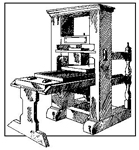
Title: Simplifying LaTeX with ORG-mode in Emacs
Summary:
using lightweight ORG markup with export to LaTeX, with extensive examples.
Full text of article: publicly available now.
Author:
Emmanuele F. Somma
Publication: TUGboat
volume 44, number 3 (2023),
pages 406–420
DOI (this page):
10.47397/tb/44-3/tb138somma-orgmode
(previous doi
- next doi)
Category:
Software & Tools
Difficulty: Intermediate Plus
Abstract:
In writing academic or technical articles, you can reduce complexity by
using markup or configurations, dropping the LaTeX markup language,
and adopting ORG-mode in Emacs while retaining LaTeX’s high
typographical quality. This article shows how ORG markup exported to
LaTeX works. Also, it explains the attributes of the most common
elements of academic papers, such as links, tables, notes, figures, and
bibliographic references. Finally, in the appendix, as a practical
project, the author’s choices for delivering the original article
following the typographical rules of ArsTeXnica are documented.
References:
- A. Babenhauserheide. Tutorial: Writing papers for ACPD using Emacs Org-mode. www.draketo.de/files/howto-write-for-acpd-with-emacs.pdf 2014.
- H. Bar, H. Wang. Reproducible Science with LaTeX. Journal of Data Science, 19(1):111–125, 2021. arxiv.org/abs/2010.01482 doi.org/10.6339/21-JDS998
- M. Borkowski. TeXing in Emacs. TUGboat 39(1), 2018. tug.org/TUGboat/tb39-1/tb121borkowski-emacs.pdf
- M. Fruchart, B. Guinhouya, et al. Jupyter Notebooks for introducing data science to novice users. Studies in Health Technology and Informatics, 294:823–824, 2022. doi.org/10.3233/shti220598
- M. Giordano, O. Iovino, M. Leccardi. Guida pratica all’uso di GNU Emacs e AUCTEX. GuIT, 2013. github.com/GuITeX/guidaemacsauctex
- B. Glickstein. Writing GNU Emacs Extensions: Editor Customizations and Creations with Lisp. O’Reilly Media, Inc., 1997.
- J. Gruber. Markdown: Syntax, 2004. daringfireball.net/projects/markdown/syntax
- GuIT. Istruzioni per gli autori, 2022. guitex.org/home/en/for-authors
- D.E. Knuth. Literate programming. The Computer Journal, 27(2):97–111, 1984. doi.org/10.1093/comjnl/27.2.97
- D.E. Knuth, S. Levy. The CWEB System of Structured Documentation. Addison-Wesley Professional, 1993. www-cs-faculty.stanford.edu/~knuth/cweb.html
- A. Leha, T. Beißbarth. The Emacs Org-mode: Reproducible research and beyond. In The R User Conference, useR! 2011 August 16-18 2011 University of Warwick, Coventry, UK, p. 28, 2011. www.r-project.org/conferences/useR-2011/abstracts/010411-lehaandreas.pdf
- S. Leonard. Guidance on Markdown: Design philosophies, stability strategies, and select registrations. RFC 7764, IETF, Mar 2016. www.rfc-editor.org/rfc/rfc7764.txt
- B. Lewis, D. LaLiberte, et al. GNU Emacs Lisp Reference Manual. Free Software Foundation, 1997. gnu.org/s/emacs/manual/html_node/elisp
- T. Mailund. Introducing Markdown and Pandoc: Using Markup Language and Document Converter. Apress, 2014. doi.org/10.1007/978-1-4842-5149-2
- S. Monnier, M. Sperber. Evolution of Emacs Lisp. Proceedings of the ACM on Programming Languages, 4(HOPL):1–55, 2020. doi.org/10.1145/3386324
- Org-mode contributors. Org mode tools, 2022. orgmode.org/worg/org-tools/
- C. Schöch. The right tool for the job: Five collaborative writing tools for academics, 4 April 2014. Impact of Social Sciences Blog. blogs.lse.ac.uk/impactofsocialsciences/2014/04/04/five-collaborative-writing-tools-for-academics/
- E. Schulte, D. Davison. Active documents with Org-mode. Computing in Science & Engineering, 13(3):66–73, 2011. doi.org/10.1109/MCSE.2011.41
- E. Somma. Il respawn di Infomedia (LaTeX-based). ArsTeXnica, (8):92–101, Ottobre 2009. guitex.org/home/numero-8
- R.M. Stallman. Emacs: The extensible, customizable self-documenting display editor. In SIGPLAN SIGOA Symposium on Text Manipulation, 1981. doi.org/10.1145/872730.806466
- L. Stanisic, A. Legrand, V. Danjean. An effective Git and Org-mode based workflow for reproducible research. ACM SIGOPS Operating Systems Review, 49(1):61–70, 2015.
- J. Voegler, J. Bornschein, G. Weber. Markdown–A simple syntax for transcription of accessible study materials. In Computers Helping People with Special Needs: 14th International Conference, ICCHP 2014, Paris, France, July 9-11, 2014, Proceedings, Part I, pp. 545–548. Springer, 2014. doi.org/10.1007/978-3-319-08596-8_85
- J.J. White. Using markup languages for accessible scientific, technical, and scholarly document creation. Journal of Science Education for Students with Disabilities, 25(1):22 pp., 2022. Article 5. scholarworks.rit.edu/jsesd/vol25/iss1/5/
TUGboat 44:3, 2023 (issue 138)
[generated 2024-05-07]
